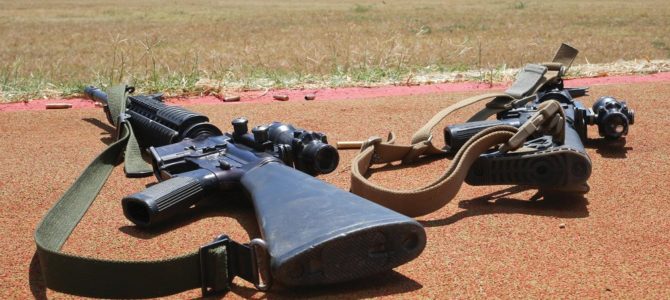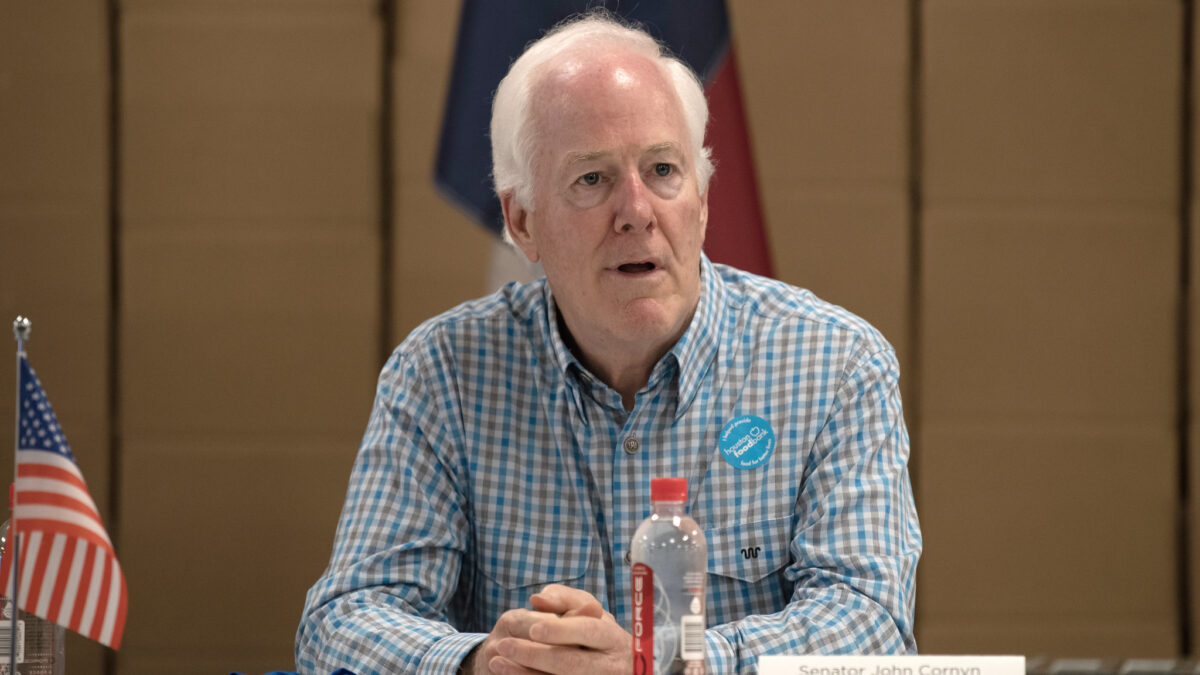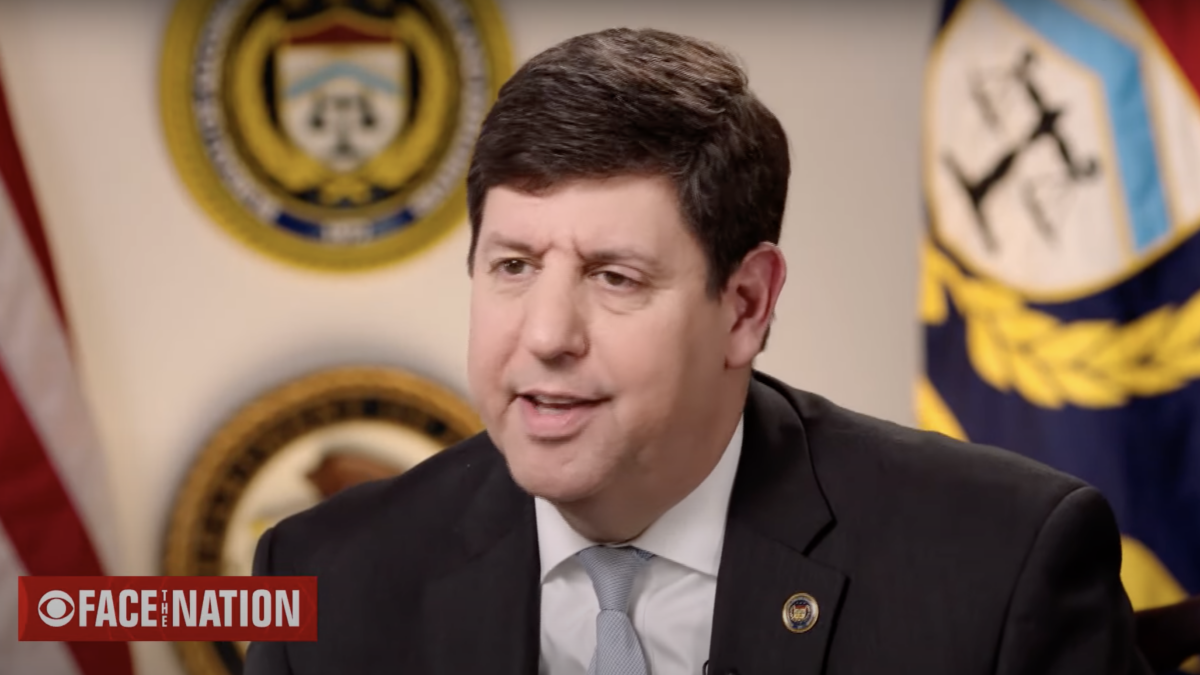
After every mass shooting in our country, left and right engage in a cyclic and counterproductive debate about gun control policies. All that changes from the aftermath of one tragedy to the aftermath of its successor is the level of vitriol in our public discussions. (These are, for the record, the most depressing introductory sentences I have ever written.)
Discussions about gun terminology have become particularly acidic, specifically in the context of gun control proposals. Many journalists and elected representatives on the left believe gun owners’ insistence on accurate gun terminology is a distraction at best and willful obfuscation of the debate at worst. These men and women believe that “gunsplaining” (to borrow a term from Adam Weinstein’s Washington Post Tuesday Op-Ed arguing against the need for informed opinions) is an unwinnable game of “Gotcha” played by the right.
In certain instances, they may be correct. Human nature being what it is, no party has a monopoly on intellectual dishonesty within its ranks. For the vast majority of gun-owners, however, journalists’ and representatives’ willingness to understand the policy specifics is a sign of good faith and honest engagement. And their persistent refusal to do so signals bad faith.
To be clear, this position does not extend to the average person — but it certainly applies to those whose jobs are to change public policy, explain public policy, or advocate for public policy. For the average person wholly uninterested in firearms, dedicating little attention to learning about the differences between various guns and their respective capacities is rational — to borrow from Kevin Williamson, it is “rational ignorance”— there are only so many hours in a day, and every hour dedicated to learning gun specifics you will likely never use is an hour not spent playing with your kids or building your business. For the average person with no interest in guns, this is a rational, understandable decision.
For those tasked with creating national laws or explaining the potential impacts of those laws to the average Americans, however, such ignorance is not rational. This ignorance is, in fact, an indication that the speaker is not serious about discussing the issue. To gun owners, lawmakers demanding immediate bans on “gas-assisted receiver firearms,” or “machine gun magazines” sounds as absurd as the late Sen. Ted Stevens famously opposing net neutrality by describing the internet as “a series of tubes … those tubes can be filled and if they are filled, when you put your message in, it gets in line and its going to be delayed.”
In short, why should citizens trust the judgment of lawmakers who cannot even describe the basic attributes of the items they want to ban?
I am not arguing for or against the wisdom of a specific policy — I am attempting to identify one of the reasons why both sides of the gun debate speak past each other with such frequency during the gun debates. We are speaking different languages. Or at the very least, we are are placing our emphasis on different terms.
An argument I frequently hear from those who find gun knowledge irrelevant is, in various forms, “I don’t need to learn about a carburetor to be able to advocate for seatbelt laws.” I will happily concede this point, because it has absolutely nothing to do with the gun-terminology debate. Seatbelt laws have no effect on which types of carburetors citizens can own. A more apt analogy is whether a lawmaker or journalist should have a passing understanding of carburetors before he or she passes, explains, or advocates for laws regulating which carburetors Ford can put in its vehicles.
Gun law, it seems, is the only public policy arena in which journalists do not demand expertise from policy makers.
I am not arguing that lawmakers or journalists must purchase and become proficient with firearms before covering them, but as with any other public policy area, it is not unreasonable to expect those in positions of authority to display a passing familiarity with the topics they explain to millions of their fellow citizens. So, when CNN anchor Chris Cuomo says “in my experience, engaging in gun vocab is mostly a distraction,” those who actually understand “gun vocab” hear him say “it isn’t important for me to know the particulars of the policy debate I am taking a side in,” and they tune him out.
When a sitting congresswoman and former chair of the Democratic National Committee wants to outlaw “high-capacity, rapid fire magazines,” gun-owners who are aware that such things do not exist (i.e. every gun owner) write off her position as that of someone who wants to “do something” without knowing exactly what that something will look like. When another member of Congress introduces a measure to ban barrel shrouds — which simply cover the barrel of a rifle or shotgun to keep the user from getting burned and do not alter the weapon’s function — but then describes the allegedly-dangerous item during an interview as “the thing that goes up” before finally admitting ignorance about its actual function, gun owners rightly question whether there had been critical thought behind the proposed bill.
It is not enough to say “I want to ban the type of guns that can kill lots of people,” or “I want to outlaw military-style assault weapons like the AR-15” (which, for the record, does not meet the military’s definition of an assault weapon — a succinct explanation from the Washington Free Beacon’s Stephen Gutowski can be found here). Those who understand guns realize those types of sweeping sentiments are impossible to implement without banning all semi-automatic weapons entirely (as Marco Rubio pointed out at the Parkland town hall). And if banning all semi-automatic weapons is one’s position, I respect their intellectual honesty and their right to that opinion, even if I disagree with it. That is, at least, a position that has a specific meaning that I can engage with and discuss.
I sincerely hope to find common ground in this debate — one thing every person in America should be able to agree on is that these types of tragedies cannot continue to happen. And, perhaps counterintuitively, it is easier to begin that process with someone who says “I think all semi-automatic weapons should be banned” (and understands the implications of their statement) than with someone who says we need to outlaw “high-magazine clips.”
So, yes, if you are a policymaker or policy-explainer, being able to speak intelligently about guns is important. It’s not “gunsplaining,” it’s responsible civil discourse.









